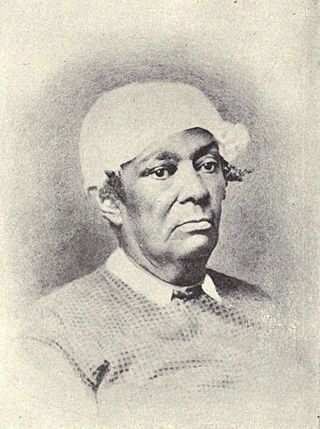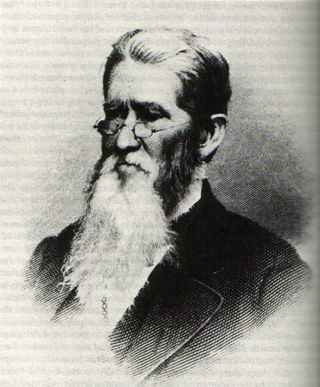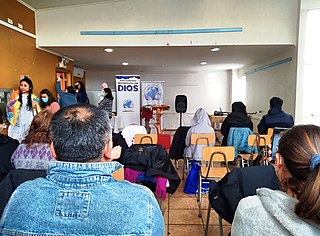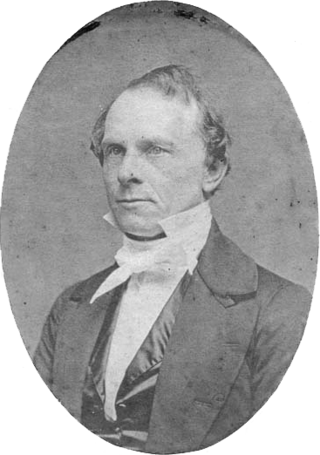
Andover Theological Seminary (1807–1965) was a Congregationalist seminary founded in 1807 and originally located in Andover, Massachusetts on the campus of Phillips Academy.

Princeton Theological Seminary (PTSem), officially The Theological Seminary of the Presbyterian Church, is a private school of theology in Princeton, New Jersey. Founded in 1812 under the auspices of Archibald Alexander, the General Assembly of the Presbyterian Church (USA), and the College of New Jersey, it is the second-oldest seminary in the United States. It is also the largest of ten seminaries associated with the Presbyterian Church.

George Trumbull Ladd was an American philosopher, educator and psychologist.
Eli Smith was an American Protestant missionary and scholar. He graduated from Yale College in 1821 and from Andover Theological Seminary in 1826. He worked in Malta until 1829, then in company with H. G. O. Dwight traveled through Armenia and Georgia to Persia. They published their observations, Missionary Researches in Armenia, in 1833 in two volumes. Eli Smith settled in Beirut in 1833.

William Buell Sprague was an American Congregational and Presbyterian clergyman and compiler of Annals of the American Pulpit, a comprehensive biographical dictionary of the leading American Protestant Christian ministers who died before 1850.

The Log College, founded in 1727, was the first theological seminary serving Presbyterians in North America, and was located in what is now Warminster, Pennsylvania. It was founded by William Tennent and operated from 1727 until Tennent's death in 1746, and it graduated proponents on the New Side of the significant Old Side–New Side Controversy that divided presbyterianism in colonial America at the time. The Log College was, as a physical structure, very plain, according to George Whitefield's journal; it was a private institution that had no charter. At that time, ministers could not get ordained unless they had graduated from Harvard, Yale, or a college in England. Thus, an important purpose in its founding was to support the spread of New Light Christianity by enabling proponents to become ordained. In sources dated through the early 20th century, it was referred to as a remarkable institution, with graduates including Samuel Finley, John Redman, and John Rowland. Though the number of eventual graduates is unknown, many would play important roles in the Old Side–New Side Controversy, and Log College alumni Samuel Blair, Samuel Finley, and William Tennent, Jr. would become trustees of a newly formed College of New Jersey, which would be renamed Princeton University in 1896.

Betsey Stockton, sometimes spelled Betsy Stockton, was an American educator and missionary in Hawaii.

The fundamentalist–modernist controversy is a major schism that originated in the 1920s and 1930s within the Presbyterian Church in the United States of America. At issue were foundational disputes about the role of Christianity; the authority of the Bible; and the death, resurrection, and atoning sacrifice of Jesus Christ. Two broad factions within Protestantism emerged: fundamentalists, who insisted upon the timeless validity of each doctrine of Christian orthodoxy; and modernists, who advocated a conscious adaptation of the Christian faith in response to the new scientific discoveries and moral pressures of the age. At first, the schism was limited to Reformed churches and centered around the Princeton Theological Seminary, whose fundamentalist faculty members founded Westminster Theological Seminary when Princeton went in a liberal direction. However, it soon spread, affecting nearly every Protestant denomination in the United States. Denominations that were not initially affected, such as the Lutheran churches, eventually were embroiled in the controversy, leading to a schism in the United States.

Robert Elliott Speer was an American Presbyterian religious leader and an authority on missions.
Andover Newton Theological School (ANTS) was a graduate school and seminary in Newton, Massachusetts, affiliated with the American Baptist Churches USA and the United Church of Christ. It was the product of a merger between Andover Theological Seminary and Newton Theological Institution. In recent years, it was an official open and affirming seminary, meaning that it was open to students of same-sex attraction or transgender orientation and generally advocated for tolerance of it in church and society.

Robert Jefferson Breckinridge was a politician and Presbyterian minister. He was a member of the Breckinridge family of Kentucky, the son of Senator John Breckinridge.

Research in 2018 suggested that Protestants represent 11-13% of the population of Chile. Figures in 2022 note that Protestants represented 2.5% of Chilean people in 2022.

The Old School–New School controversy was a schism of the Presbyterian Church in the United States of America which took place in 1837 and lasted for over 20 years. The Old School, led by Charles Hodge of Princeton Theological Seminary, was more conservative theologically and did not support the revival movement. It called for traditional Calvinist orthodoxy as outlined in the Westminster standards.
John A. Mackay was a Presbyterian theologian, missionary, and educator. He was a strong advocate of the Ecumenical Movement and World Christianity.

Dyer Ball was an American missionary and medical doctor in China. Born in West Boylston, Massachusetts, Dyer Ball studied at Phillips Academy and at Yale College for two years. He graduated from Union College, New York, in 1826, and then studied Theology at Yale and Andover Theological Seminary. He received his licence to preach in 1828, one year after marrying Lucy Mills. After being ordained in 1831, Dyer Ball became an agent of the American Home Missionary Society in 1833, and settled in Florida, where he taught, among other places, at St. Augustine High School there, and among the local African-American community. Meanwhile, as his appointment to a mission abroad was delayed due to financial circumstances, he also received a medical degree from a medical institution in Charleston, South Carolina, in 1837, and learned Chinese.

William D. Reynolds was an American Southern Presbyterian (PCUS) missionary and Bible translator in Korea.

William Patterson Alexander was an American missionary to the Kingdom of Hawaii. His family continued to influence the history of Hawaii.

William Henry Foote was an American Presbyterian minister in Virginia and North Carolina. He served as a Confederate chaplain during the American Civil War of 1861-1865. He wrote several books about the history of Presbyterians in the American South.
John Welsh Dulles was an American Presbyterian minister and author. He was the grandfather of John Foster Dulles and Allen Welsh Dulles.

Richard Falley Cleveland was an American Congregationalist and Presbyterian minister. A graduate of Yale College and Princeton Theological Seminary, he spent most of his life as a pastor, outside of a brief period as a district secretary for the American Home Missionary Society. He is best known as the father of Grover Cleveland, who was twice President of the United States.

![]() This article incorporates public domain material from the 1889 Yale Obituary Record .
This article incorporates public domain material from the 1889 Yale Obituary Record .














